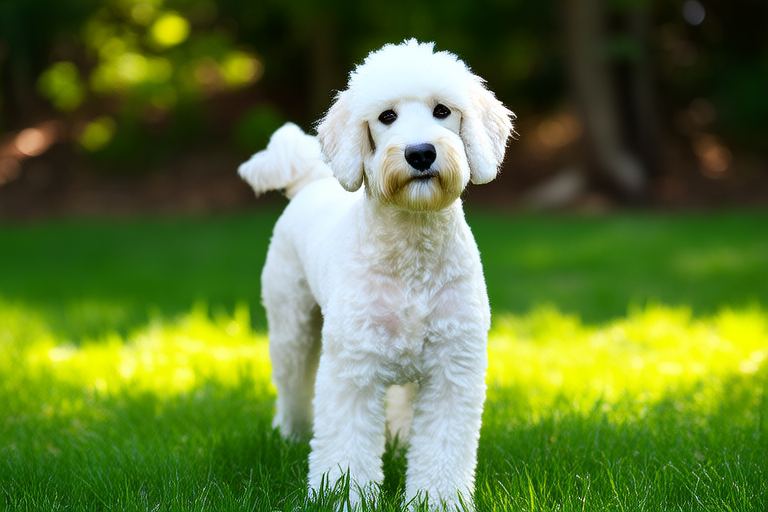Poodles: The Smartest Dogs
Poodles are often regarded as one of the most intelligent dog breeds. Their reputation for being highly intelligent is supported by a range of factors, including their exceptional problem-solving abilities, obedience skills, and historical use in various roles. This article will delve into the reasons behind this reputation, examining the genetic traits that contribute to their intelligence, the role of early training and socialization, and scientific studies that back up their reputation.
Intelligence and Trainability
The American Kennel Club (AKC) ranks poodles as the second smartest breed, just after Border Collies. This ranking is based on their ability to learn and obey commands quickly. Poodles can understand new commands in less than five repetitions and obey them on the first try 95% of the time. This high level of trainability makes them ideal candidates for various roles, from therapy dogs to guide dogs.
Historical Use in Various Roles
Poodles have been used in various roles throughout history, including retrieving waterfowl, hunting, and performing in circuses. Their intelligence and agility made them excellent performers in these roles. For example, they were used as truffle hunters in France due to their keen sense of smell and ability to work independently. They were also used as circus performers due to their intelligence and ability to learn complex tricks quickly.
Problem-Solving Abilities
Poodles possess exceptional problem-solving abilities, which set them apart from other breeds. They can figure out puzzles and navigate mazes with ease, demonstrating their ability to think critically and solve problems. For instance, in a study conducted by the University of Vienna, researchers found that poodles could solve a variety of puzzle tasks, including opening doors and retrieving objects, more quickly than other breeds. This study demonstrated their ability to think creatively and adapt to new situations.
Obedience Skills
Poodles excel in obedience trials, consistently ranking among the top breeds in competitions. Their ability to follow commands and perform tasks accurately and efficiently is a testament to their intelligence and trainability. In addition to their natural aptitude for obedience, poodles also have a strong desire to please their owners, making them eager learners. This combination of intelligence and motivation makes them ideal candidates for advanced training programs.
Comparisons with Other Dog Breeds
While poodles are often regarded as the smartest dogs, there are other breeds that also rank highly in terms of intelligence. Border Collies, German Shepherds, and Golden Retrievers are among the breeds that consistently rank highly in intelligence tests. However, poodles stand out for their versatility and adaptability. They can be trained for a wide range of roles, from therapy dogs to search and rescue dogs, and excel in each of these roles.
Genetic Traits Contributing to Intelligence
The intelligence of poodles is believed to be influenced by several genetic traits. One of these traits is their high levels of dopamine, a neurotransmitter associated with motivation and reward. This trait makes poodles highly motivated to learn and perform tasks, as well as seek out new experiences. Another genetic trait that contributes to their intelligence is their large brain size relative to their body size. This trait is associated with higher cognitive function and problem-solving abilities.
Early Training and Socialization
Early training and socialization play a crucial role in enhancing the intelligence of poodles. Positive reinforcement training methods, such as clicker training, are particularly effective for poodles. These methods involve rewarding desirable behaviors with treats or praise, which reinforces the behavior and encourages the dog to repeat it. Early socialization is also important for poodles, as it helps them develop confidence and adaptability. Socializing poodles with a variety of people, animals, and environments during their formative years can help them become well-rounded and adaptable adults.
Learning Capabilities
Poodles have exceptional learning capabilities, which allow them to master complex tasks and concepts quickly. They can learn new commands and tricks in a matter of minutes, and once learned, they retain this knowledge for a long time. Poodles also have a strong memory, which allows them to recall previously learned commands and tricks even after extended periods of time. This ability to learn and retain information makes them ideal candidates for advanced training programs, such as agility and obedience competitions.
Scientific Studies Backing Up Their Reputation
Several scientific studies have backed up the reputation of poodles as highly intelligent dogs. One study conducted by the University of California, Davis, found that poodles scored higher than other breeds on tests of problem-solving and cognitive flexibility. Another study conducted by the University of Vienna found that poodles could solve a variety of puzzle tasks more quickly than other breeds. These studies demonstrate the exceptional problem-solving abilities and cognitive flexibility of poodles.
Tips for Owners to Keep Their Poodle Mentally Stimulated
To keep their poodles mentally stimulated, owners should provide them with regular mental challenges and activities. Puzzle toys and treat-dispensing toys are excellent tools for keeping poodles engaged and mentally active. Owners should also consider enrolling their poodles in obedience or agility classes, which provide both mental and physical stimulation. Additionally, owners should ensure that their poodles receive regular socialization and exposure to new environments, which helps them develop confidence and adaptability.
Conclusion
Poodles are often regarded as one of the most intelligent dog breeds, and their reputation is supported by a range of factors, including their exceptional problem-solving abilities, obedience skills, and historical use in various roles. Their intelligence is believed to be influenced by several genetic traits, including their high levels of dopamine and large brain size relative to their body size. Early training and socialization play a crucial role in enhancing the intelligence of poodles, and positive reinforcement training methods are particularly effective. To keep their poodles mentally stimulated, owners should provide them with regular mental challenges and activities, such as puzzle toys, treat-dispensing toys, and obedience or agility classes. By following these tips, owners can help their poodles reach their full potential and enjoy a happy, healthy life.
